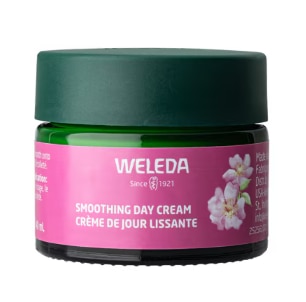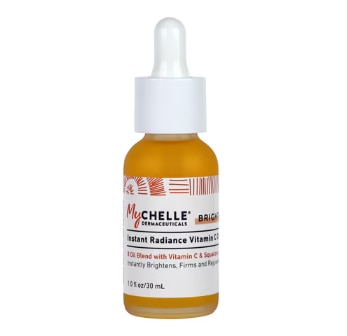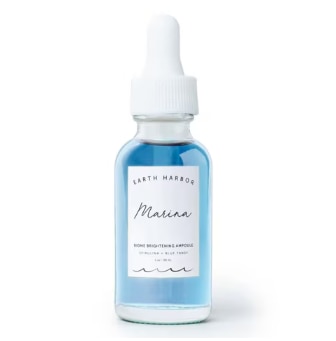Have you ever noticed when your favorite face cream doesn’t seem to be bringing about that same dewy glow you remember when you first started using the product? Or when your go-to acne spot treating ointment doesn’t seem to be calming down your latest breakout? Could it be that your products have stopped working?
Dr. Andrea Suarez, a board-certified dermatologist and skincare expert based in Houston, Texas, clears up the confusion surrounding skincare product plateaus.
“Skin care does not stop working,” she insists, “That’s right. It’s not as though petrolatum or dimethicone suddenly one day decide, ‘hey, we’re no longer going to retard trans epidermal water loss.’ It’s not as though benzoyl peroxide suddenly decides ‘hey, I’m no longer going to be antibacterial [or] suppress inflammation.’ It’s not as though retinal one day is like ‘hey, you know, I think I’m going to retire from modulating gene transcription [and stop] facilitating better skin cell turnover.’”
So why is it that your favorite face wash no longer seems to be clearing your pores? Or that you’ve discovered another age spot even though you’ve been using Vitamin C serums for years?
“The problem, I think, is that the skincare industry has people believing that skincare products are the end-all, be-all solution for skin problems and that they do way more for the skin than they actually do,” Dr. Suarez explains. “A good skincare routine, while it can help you – is not this panacea. People are giving skincare products way too much credit.”
Instead, it turns out that the way you live and your environment has way more impact on your skin than any product you may be putting on it.
7 Factors that May Be the Reason for Your Skincare Plateau
1. Birth control
Hormonal birth control can have a complex relationship with skin health, sometimes improving and sometimes worsening skin conditions such as acne. While certain types of birth control, particularly those containing both estrogen and progestin, can help manage acne by regulating hormones that contribute to breakouts, others, especially progestin-only methods, may exacerbate acne or lead to other skin issues like melasma or dryness.
“Oftentimes, new onset worsening acne breakouts may be due to the fact that some people start and stop birth control pills,” Dr. Suarez add, “Starting and stopping birth control pills can cause flares of hormonal acne. [And something like] benzoyl peroxide can never really address the hormonal component of acne.”
2. Medications
Medications can definitely cause skin changes, and these changes can range from mild rashes to more serious reactions. Antibiotics, anticonvulsants, opioids, statins and medicines that lower blood pressure can all create changes in the skin, from itchiness and dryness to hives.
“Sensitive skin can arise due to medications, [which can] make your skin more sensitive to burning and stinging [sensations]. They may make the little nerves in your skin just a little bit more irritable or hyperactive,” Suarez agrees. “Not everything that happens to you shows up on your skin right away or the next day or even the next week. Sometimes there is a quite a bit of lag time [and] you may not have skin issues arise due to that medication for up to six weeks. You may forget that you ever took the medication.”
3. Dietary supplements
Have you recently changed your multivitamin or started using a new supplement? Well, it could be why your skin isn’t responding the same way to your skincare routine.
“Some dietary supplements can make your skin more sensitive,” Dr. Suarez explains. “They can make you more prone to getting a sunburn or to [experiencing] burning and stinging sensations [when using] topical products and make you more prone to different kinds of rashes.”
Studies show that excessive amounts of vitamin A, beta-carotene and the B vitamins can be problematic for the skin, causing dryness or itching, while ingredients such as iodine, whey protein and biotin – commonly found in supplements – can also be major acne triggers.
4. You caught a cold
While not a primary symptom of a bacterial infection or virus, skin rashes can occur as a secondary symptom. Some viruses, including influenza, can trigger a rash as the body fights the infection. These rashes can appear as red or purple spots, bumps or blotches on the skin, and may be itchy or painful.
“You may not have even had symptoms of being sick,” Suarez says, “but the cold or flu virus passes through your body, and as it’s going through your immune system, your skin rallies against it and then gets a little confused and it comes to the [pores] and makes this rash that comes and goes. And you may attribute that to your skin care products no longer working because now you have this redness and itchy sensation in the skin.”
5. Seasons change
Ambient changes in temperature and humidity can significantly affect the skin. Hot weather, for instance, can increase sweating and sebum production while colder temperatures can cause dryness, flakiness and cracks in the skin barrier.
“One summer I went to Costa Rica,” Dr. Suarez says, “I was doing a medical elective there and I was there for the whole summer. It’s such a tropical environment that when I came back to Colorado [where I lived at the time], my skin started peeling right away, just a few days after getting back, because all of the sudden, there was a huge discrepancy in the ambient humidity compared to what my skin was used to prior and I had all this dryness and peeling.”
6. Stress and lack of sleep
A sleepless night or a stressful meeting at work can do more to your skin than you may think. Both can disrupt the body’s natural processes and increase cortisol levels, triggering inflammation and potentially worsening skin conditions like eczema and psoriasis. Lack of sleep can also lead to reduced skin hydration and impaired collagen production, contributing to wrinkles and dullness.
“Stress and sleep do far, far more for the health of your skin than any cream or serum ever will. Period,” Suarez states. “[They] impact hormones in your body and you’ll have a lot of inflammatory mediators circulating around that are going to show up on your skin in the form of acne flareups, dark under eye circles, drier skin, and puffiness.”
7. Expired products
Use your skincare products as soon as you purchase them and try to refrain from collecting backstock. Using expired products can lead to reduced effectiveness, irritation and even infections because as the active ingredients break down, they lose their potency and preservatives degrade, allowing bacteria and mold to grow. If you think your skincare product isn’t working anymore, consider how old it is as older products may not deliver the intended results as their active ingredients weaken over time.
For example, sunscreens lose their UV protection and acne treatments become less effective. Old products can also break down into potentially irritating substances that can cause redness, itching and burning sensations, particularly in those with already sensitive skin. Most skincare products should be kept for 6 months to 1 year after opening but always check the expiration dates, keep track of how long your products have been sitting on your bathroom shelf and never use a product showing signs of rancidity – like changes in texture, color or smell.
Take Accountability
The bottom line is that skincare products with active ingredients can make small improvements to your skin texture but it’s important to remember that topical treatments only run skin deep, literally.
“The products that you’re putting on your body don’t really do that much,” Dr. Suarez emphasizes. “They don’t sleep for you, they don’t eat for you, they don’t workout for you, they don’t keep you from getting colds and flus and they can’t reverse the side effects of medications that you might be taking at various periods of time in your life.”
Don’t let your skincare products do the heavy lifting! Because they really can’t. In fact, the reverse is true. A healthy lifestyle can actually make your skincare products more effective. And remember that changes in your skin may signal other health problems you may want to address.
“If you feel like your products are not working, don’t chuck them and buy a whole bunch of new [products],” Suarez insists, “See your dermatologist or your primary care doctor – maybe it’s time for a checkup, maybe there are some things going on in your life that need attention and they’re showing up on your skin in ways that you may not be aware of.”
Listen to your skin and your whole body is on the road to better health!




